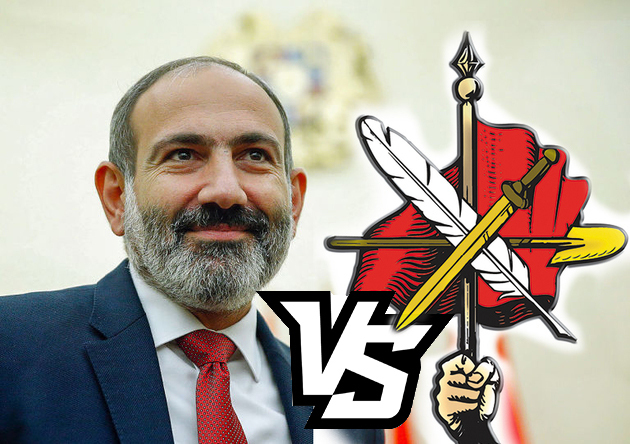Armenian nationalists are trying to formulate a false domestic political agenda again. Their ephemeral preoccupation with the post-war situation brings tension into the public space, which is fueled by all sorts of rumors and gossip. It seems that in three decades, post-Soviet Armenia would have been used to the eternal mobilization policy of the Dashnaks, which is episodic in nature. However, the year 2022 may become decisive in the fate of the entire nationalist movement, as it may bring closer the normalization of relations between Armenia and its neighbours.
Armenians outside the republic have declared 2022 "the Year of the Diaspora". This was modestly announced by the Catholicos of Cilicia Aram I during a recent meeting with the Armenian intelligentsia of Lebanon. According to the clergyman, the resource of the diaspora is extremely relevant right now, during the period of post-war settlement between Armenia and Azerbaijan, since Turkey's active foreign policy is being conducted in parallel, which can contribute to the normalization of bilateral relations between Ankara and Yerevan. The Diaspora should actively involve young Armenians in the political processes so that they, in turn, would show interest in the initiatives taken in relation to Armenia. Aram I's concern about the situation on the diplomatic front is understandable: peacekeeping initiatives devalue the policy pursued by the diocesan structures of the Cilician catalicosate. As long as there are contradictions between Armenia and Turkey, the church retains hope for the compensation of lost property, including the restoration of the diocese in Turkey.
Nevertheless, the classic call for unity by the Middle Eastern structures of the Armenian Church is less emotional than the political hysteria of the "Dashnaktsutyun". The ARFD office in Sweden announced that "the normalization of Armenian-Turkish relations is not the monopoly of Pashinyan's party", thereby deliberately vulgarizing the idea of the competence of the Armenian government.
Another example of an attempt to bring confusion into the information space of Armenia was the interview of the ARF "Dashnaktsutyun" bureau's head, Kiro Manoyan, who described the results of the Moscow meeting of special representatives Ruben Rubinyan and Serdar Kılıç as Ankara's desire to crush Armenia through economic expansion. The expert was not embarrassed by the fact that Armenia is firmly integrated into the EAEU space, and peacekeeping initiatives between countries are supported far beyond the South Caucasus.
Through the veil of populist propaganda, there is a clear desire of nationalists to mobilize the resources of the diaspora against Pashinyan. The Dashnaks consider it inappropriate to hold street demonstrations in Armenia, since the Armenian public is tired of them. Nationalists are also afraid of going against Russian policy in the region, as it is supported by Russia's military presence in Armenia. Committing terrorist acts in the republic itself is fraught with a complete ban on "Dashnaktsutyun". Therefore, this time the revanchists decided to mobilize foreign Armenians to put pressure on Pashinyan, thereby trying to disrupt the negotiation process by blurring its borders.
Since the Prime Minister is currently experiencing difficulties in communicating with diaspora structures, the nationalists' goal is to create conditions under which Pashinyan cannot feel safe among Armenians outside the republic. In this case, he will be forced to evade participation in the negotiation process; deblockade of transport communications will become impossible; and Armenia will find itself in political isolation once again, in the space of which the ideology of revanchism comfortably parasitizes. In Europe Armenian nationalists use a speculative policy, defining the process of diplomatic overcoming of existing contradictions between Turkey and Armenia as an irreconcilable confrontation between rival ethnic groups.
For the current leadership of Armenia, the extra-regional activity of the "Dashnaktsutyun" is an unfavorable signal, since nationalists appeal to the politicization of the tragic events in the Ottoman Empire in 1915. For a long time, the topic of tragic events served as a kind of bridge between post-Soviet and foreign Armenians, for whom the "Armenian issue" serves as an identification tool. Pashinyan and his team face a difficult task: to bring Armenia to a fundamentally new regional level, overcoming the consequences of the defeat in the last war and at the same time not to become outcasts in the eyes of the diaspora, whose emotions and instincts the Dashnaks seek to control.






